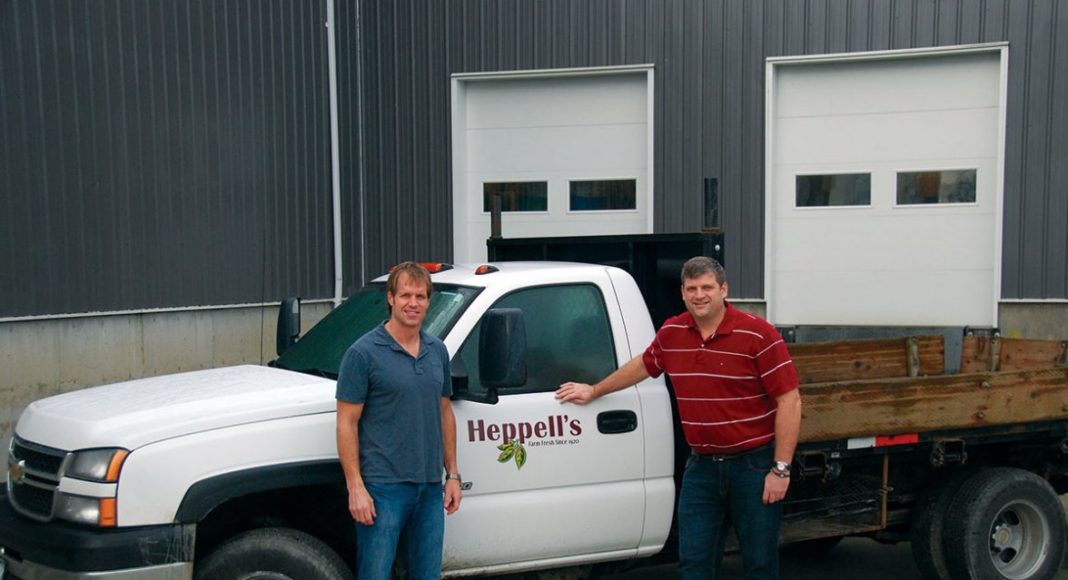[deck]Despite decades of success, a British Columbia-based company is not relying on past achievements.[/deck]
Heppell’s Potato Corporation, headed by Wes and Laureen Heppell and Peter and Lauren Schouten, is a family-owned business on the edge of the West Coast of Canada that grows potatoes as well as other vegetable and cereal crops. Peter Schouten describes their location as “five miles from the coast and five miles up from the U.S. border,” and adds that three generations of two families have farmed in the area since the 1920s. However, it isn’t longevity alone that ensures the company’s success, but the partners’ willingness to be innovative and introduce technology that reduces their carbon footprint.
“We operate an anaerobic digester, the first of its kind in Canada,” Schouten says. The digester uses manure and other vegetable waste, combined with bacteria, to create non-fossil fuel-based natural gas, or “biogas,” which Heppell’s sells to their local natural gas provider. The digester offers the company a way to use up cull piles and excess organic matter while producing a clean product.
“We are producing pipeline-quality natural gas,” Schouten says of the digester, which has been in operation for a year.
Potato production, however, is the farm’s main operation–the digester simply enables both families to be better stewards of the land and to manage their waste more effectively. For over 90 years, the farm has produced a long list of potato varieties. Their current favourites are Norland and Chieftain in the red category, white varieties Warba, Norchip, Cascade and Harmony, and Yukon Gold in the yellow class, along with Vivaldi. Schouten says his personal favourite is Yukon Gold. He believes this standard is a favourite with many consumers due to brand recognition.
According to Schouten, brand recognition and traceability will be the main challenges for potato growers into the future. During his years in the business, he has seen changes in consumer preferences that have directly affected his production. “Potatoes have become a commodity, and I see increasing demands from consumers for better cosmetic appearance and improved quality,” he explains. “Food safety and traceability are huge issues for us as well.”
“We strive to provide a product with consistent quality that is profitable and sustainable and lowers our carbon footprint,” Schouten says.
Despite the company’s serious focus on being sustainable and reducing its environmental impact, the Heppells and Schoutens have fun doing what they do. The company recently introduced Hard Bite Potato Chips, their entry into the gourmet kettle cooked potato chip market, under the company name Naturally Home Grown Foods. Currently available in the lower mainland of B.C., the chips could be coming to stores across Canada, according to Schouten—and marketed with the very Canadian tagline of “Bite me, eh?”
The farm employs 67 full-time and part-time people year-round and grows about 750 acres of potatoes across an area that spans 35 miles. The farm rotates to 150 acres of squash and 100 acres of other crops. The owners of Heppell’s, according to Schouten, want to be known as the “local potato producers.” They continue to develop relationships with consumers and their partners, Schouten says, because that is what has kept the company successful for so many years. That, and the willingness to be innovative and forward-thinking, and to make the best potato chips around.











